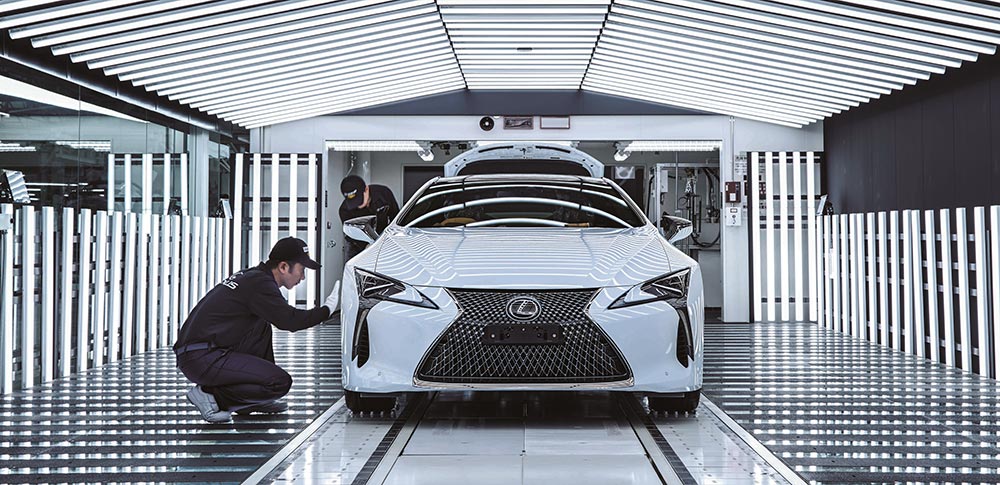This story was originally published by Lexus Europe.
Craftsmanship is an age-old tradition in Japan, a country where carefully honed skills are passed from generation to generation to make beautiful, expertly crafted objects. This human touch – the immense care and attention to detail that only man, as opposed to technology, can provide – is the backbone of what makes Lexus and its cars so unique.
At Lexus’ Motomachi plant, in Japan’s Aichi prefecture, the LC luxury coupe is produced by a team of Takumi master craftsmen and exceptionally skilled workers, who apply their wealth of knowledge in every step of the manufacturing process. Combining the finest craftsmanship with innovative technologies, Motomachi is one of the most sophisticated car factories in the world. With its distinctively high-tech feel, it is no surprise that it was at this pioneering plant that many of the same engineers and specialists hand-built the iconic LFA supercar. Now, the craftsmen are using the skills that they acquired in the production of the LFA – such as the development of carbon-fiber components and the expert hand-finishing – to manufacture the LC according to the same quality standards and vigorous care.
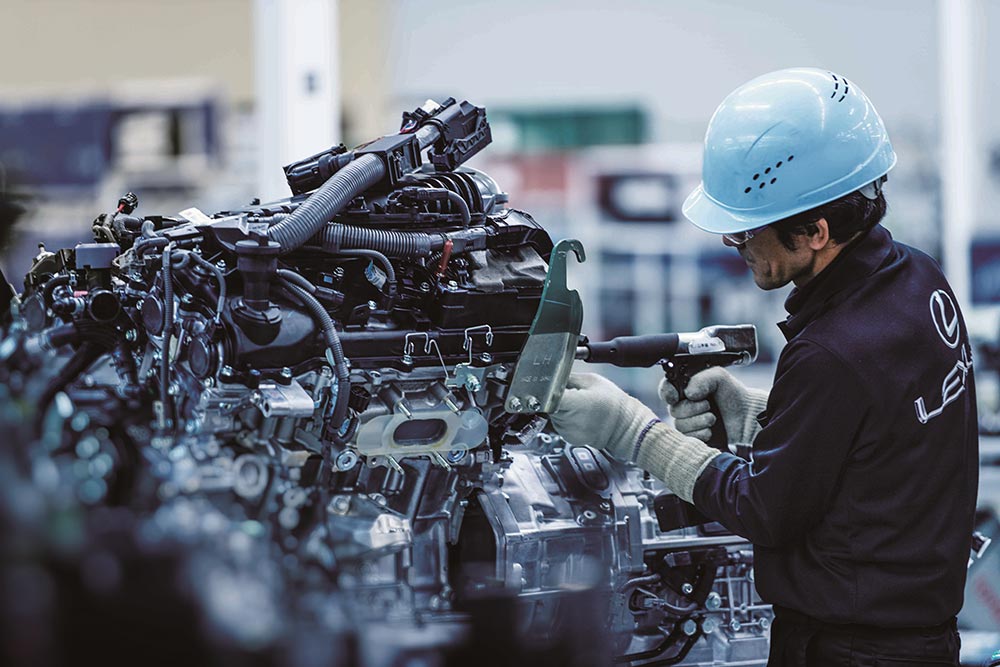
From body fabrication to test drive, the eight Takumi and other workers each specialize in a specific step of the manufacturing process behind the LC. The team demonstrates a hands-on approach and rigorous precision throughout. At the heart of the brand’s DNA sits the idea that the human touch, mind and spirit are critical in injecting emotion into every Lexus. For this reason, the Motomachi plant has been designed to serve the greatest machine ever created: the human body.
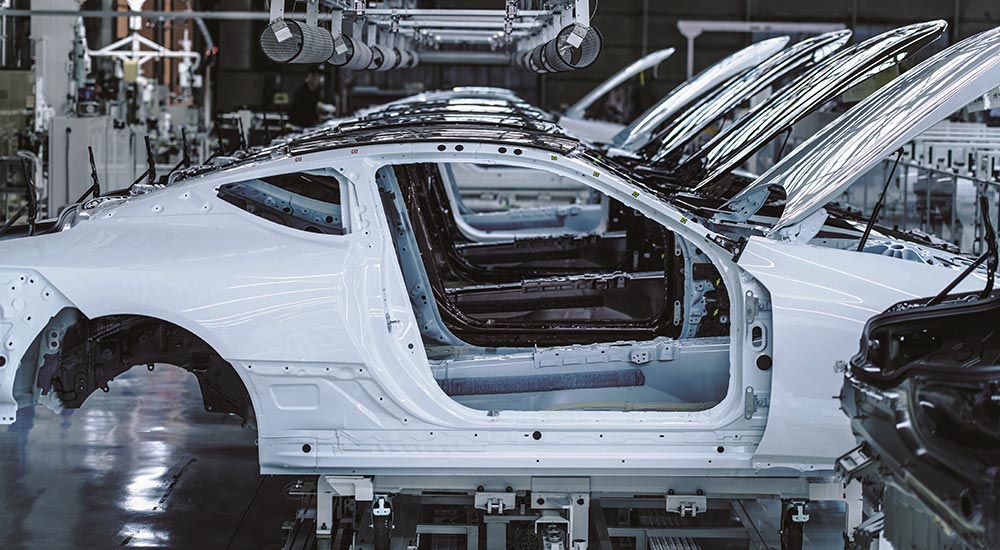
The tools used by the team conform to the latest in technology, engineered to achieve the highest level of craftsmanship. There are tablets with checklists to hand, designed to improve the production, which includes capturing flaws and making sure that no step in the chain is overlooked. For example, at the end of the panel construction and body welding processes – among the first steps in the production of an LC – a master craftsman evaluates the alignment accuracy of the chassis with his well-trained eyes and touch; it is an in-depth process that numbers more than 800 individual checks, so he is assisted by electronic sensors to verify the weld integrity of each part.
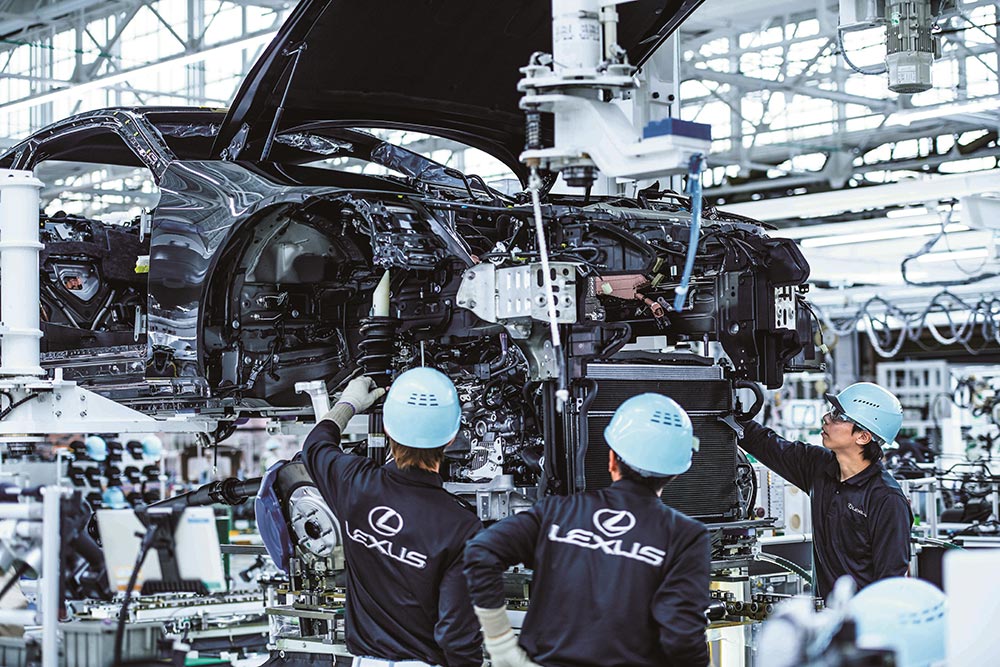
At the Lexus plant, the execution of the most delicate tasks lies in the harmonious interplay between craftsman and technology. Since machines can only detect flaws that they have been trained to identify, the craftsman can achieve a higher degree of precision because he has the power to recognize imperfections that may never have been seen before.
Lighting is another crucial factor for guaranteeing the best quality, allowing the craftsmen at Motomachi to detect the smallest of defects. The specially tailored assembly line has an all-white finish from floor to ceiling, providing an immaculate, perfectly organized work environment that maximizes the team’s focus. Everything has its rightful place within the brightly lit plant to ensure that in the unlikely event an object is misplaced it will stand out.
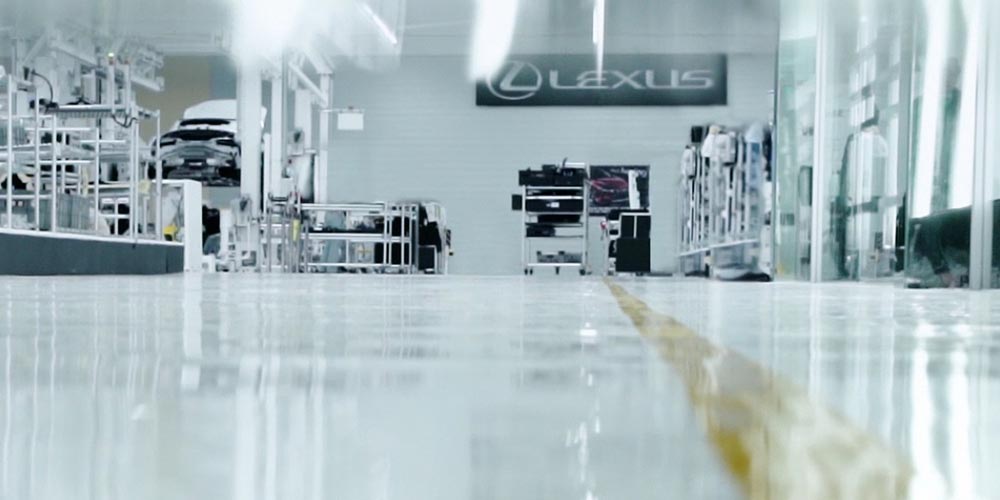
At the end of the assembly, the LC moves into a futuristic light-filled glass booth for a detailed inspection of 700 individual check points by two of the most skilled craftsmen. Inside the glass booth, there are precisely spaced LED light bars, which, after a number of meticulous trials and revision rounds, have been placed at 30cm intervals as the test results showed that this is the best spacing for the human eye to detect defect. Under the glow of these ideally-spaced LED lights, the craftsmen scrutinize details that are not even seen by customers, such as the precision finish of all exterior and interior surfaces, the color evenness and the operation of working parts. They use their senses to effectively evaluate each vehicle.
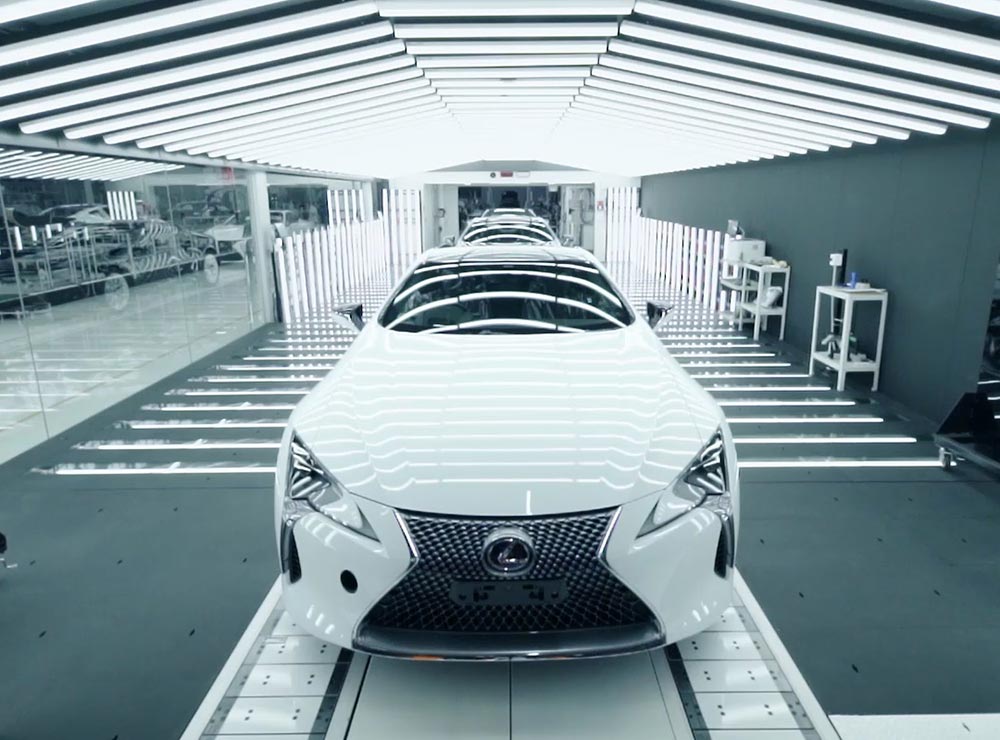
Besides the availability of advanced tools and optimal lighting conditions, the reduction of noise inside the inspection booth allows the team to perform the most thorough of inspections necessary for delivering the perfect car. With the thick glass walls of the booth providing complete silence, the craftsmen’s sense of hearing is especially astute: they check the smooth operation of functional parts such as the opening and closing of the doors and windows by listening out for small abnormal sounds. In this pristine, all-silent environment, in which you could even hear a pin drop, craftsmanship can thrive at its fullest.
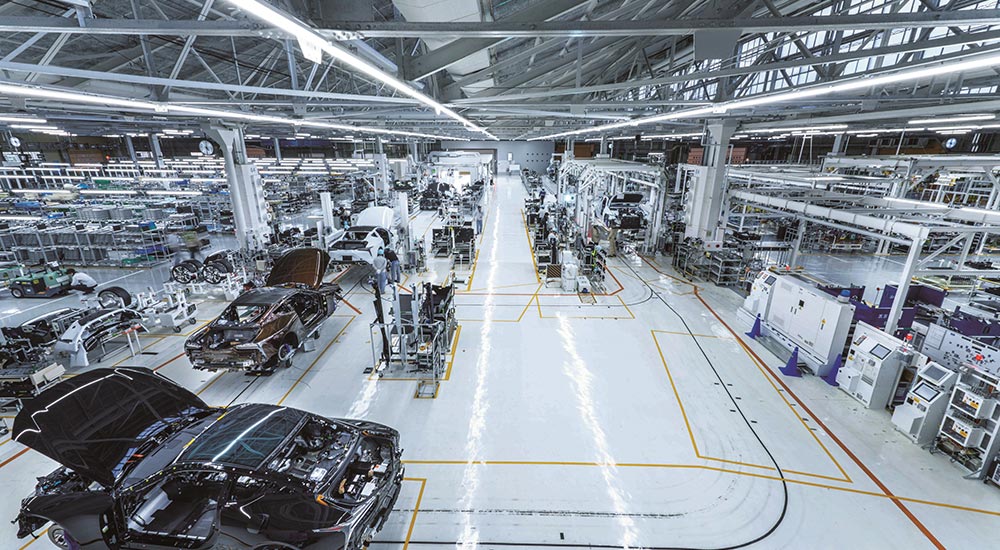
The final stage before a Lexus reaches the customer is a test drive on a purpose-built track by a craftsman trained in performance driving. This final point is yet another manifestation of the brand’s belief in the power of the attention to details that only humans – the greatest machine ever created – can provide: Lexus relies on the master’s highly sensitive touch for assessing vehicle feedback through the steering wheel and making sure that all parts are working securely. It is through this perfect marriage between expert craftsmanship and emotion, state-of-the-art technology and a pristine work environment that Lexus creates amazing experiences, delivering some of the finest cars ever built.

